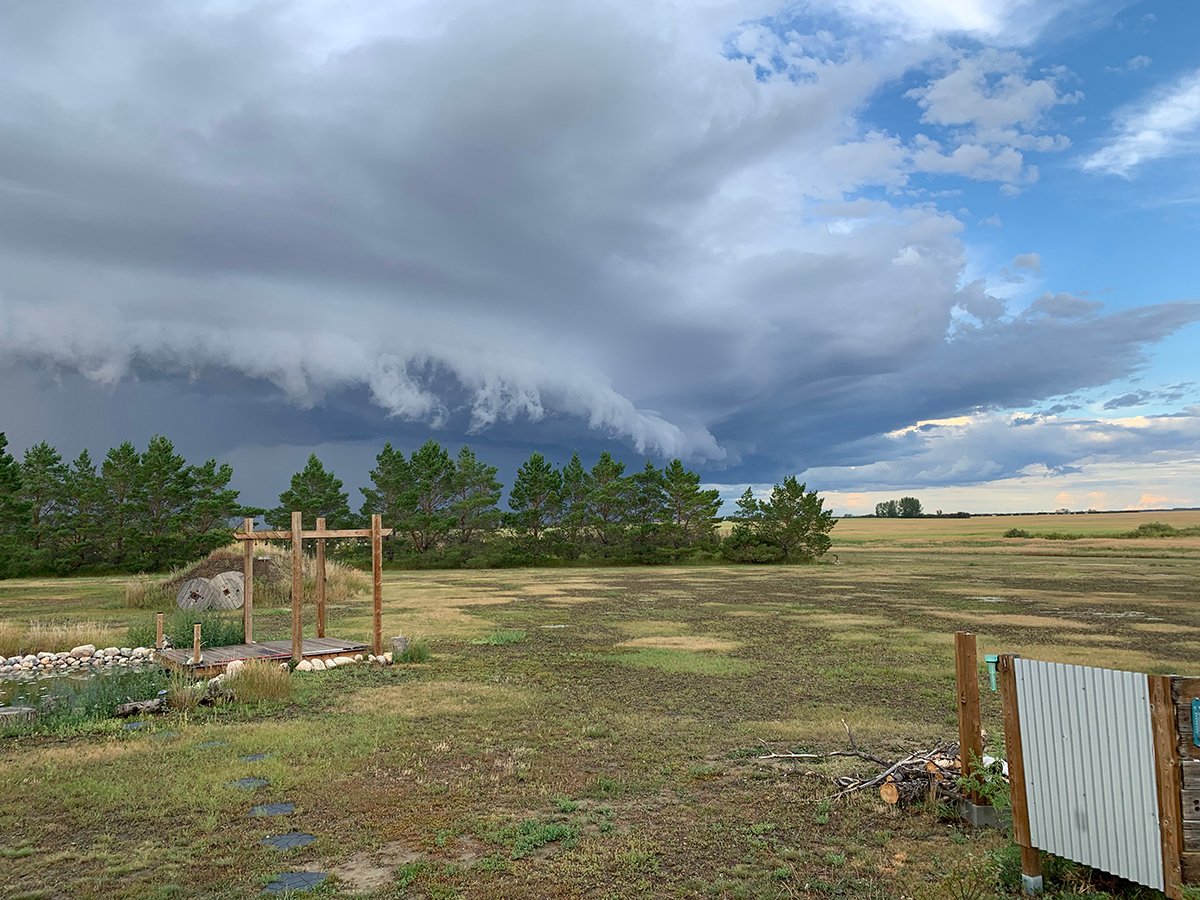If the bears smell it, they will come.
Lyle Fullerton of Alberta Sustainable Resource Development says bears are attracted to strong odours on farms, such as livestock carcasses and rotting garbage.
“A general rule of thumb is if it smells bad, they like to eat it.”
Fullerton said the most effective way to bear-proof the farm is to never attract them in the first place.
“If he can get a free meal, he will hang around and come back for another meal,” he said.
Read Also

Storm dynamics and extreme rainfall
Besides moisture, instability and orographic lift, the next biggest factor that contributes to heavy or extreme rainfall is storm dynamics.
Alberta’s Bear-Smart program tips include keeping newborn and ill animals close to home and monitoring children closely in bear populated areas.
Bears are hungry in spring, so Fullerton suggested a good spring yard and farm cleanup.
Clear away spilled grain, bury animal carcasses more than a metre underground, burn off the grease on the family barbecue and bring in the bird feeders and suet balls. Composting may be environmentally friendly but smelly piles will attract bears.
Electric fences can provide defence for bee operations but there have been incidents of bears digging underneath them.
The best defence is to stop bears from ever getting that first taste and to ensure the bear’s first visit to the farm is an unpleasant one.
“If we can prevent them from getting a meal and becoming conditioned to human food sources, we can reduce bear complaints and conflicts with humans,” Fullerton said.














